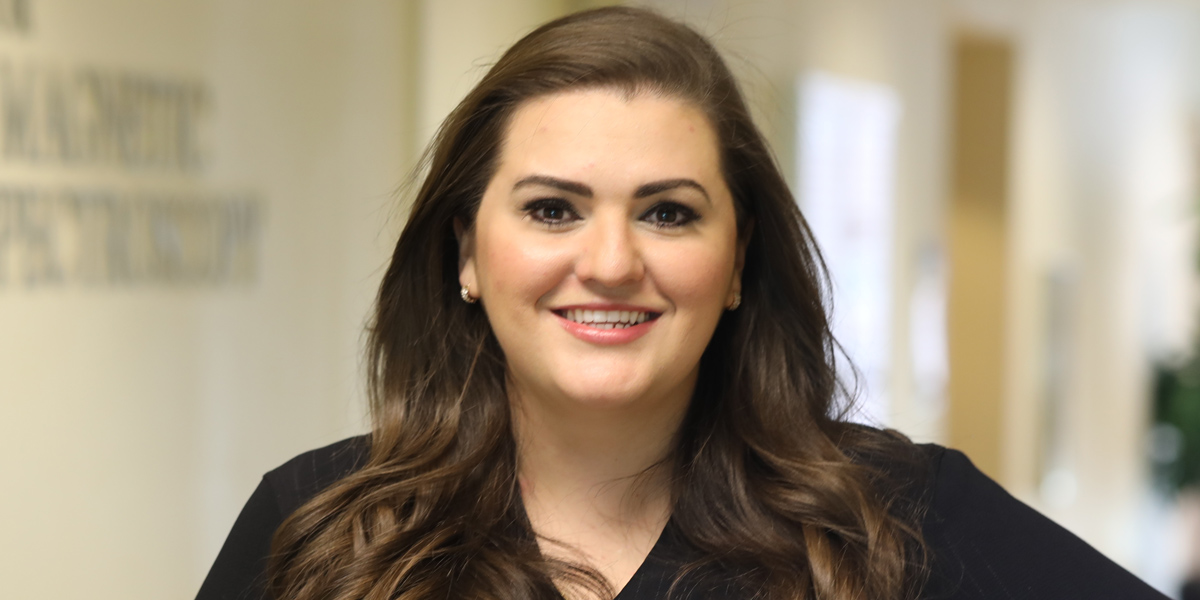$2 million grant brings Baylor alumna back to BU for cancer research

As a Baylor student, Liela Romero, BS ’11, pursued her childhood dream of becoming a cancer researcher. She jumped at the chance to work in Dr. Kevin Pinney’s cancer research lab as an undergraduate, earning the respect of her chemistry and biochemistry professors.
Nine years later, Romero has earned a spot as their colleague.
With the help of a $2 million grant from the Cancer Prevention and Research Institute of Texas (CPRIT), Romero — now Dr. Romero — has returned to Baylor as an assistant professor of chemistry and biochemistry. The grant will cover the cost of establishing Romero’s teaching and research careers at her alma mater, and add some prestige in the process. The highly-competitive grants, aimed at recruiting top young cancer researchers to build their careers in Texas, are pursued by many outstanding educators. The investment shows that the broader scientific community believes Romero will make, as the application says, “outstanding contributions in cancer research.”
After graduating, Romero earned her Ph.D. at UT-Southwestern Medical Center and spent the last four years serving as a postdoctoral researcher in a highly regarded MIT laboratory. Her research at Baylor will focus on the development of chemical synthesis strategies that could lead to future cancer treatments. How does that work? We’ll let her explain:
“A large portion of new therapeutic drug leads have historically come from natural products — compounds made by nature that we isolate — or are derived from some form of natural products,” Romero says. “In my work, I’m interested in exploring a series of small natural products that have demonstrated very distinctive and selective anticancer activity. Our goal is to develop new chemical strategies that enable us to make these compounds, which have traditionally been difficult for synthetic chemists to access. Moreover, we want to understand where this anticancer activity is derived from in order to further improve the efficacy and therapeutic potential of these small molecules.”
Romero’s return to campus coincides with Baylor’s work to become a Tier 1 research university and enhances her own department’s reputation for highly-regarded cancer research. That she’ll be pursuing that in the labs and classrooms she shared as an undergraduate brings things full circle, personally as well as professionally. In addition to being introduced to high-level research at Baylor, she met her husband, Derich (BS ’12), at Baylor, and says that campus still feels like home.
“The university is bigger and continually growing as it promotes greater research initiatives. But from the moment I stepped foot back on campus, it still feels like Baylor, and I’m excited to experience that as a professor.”
Sic ’em, Dr. Romero!

